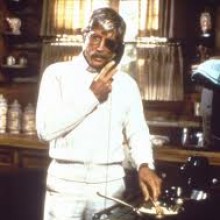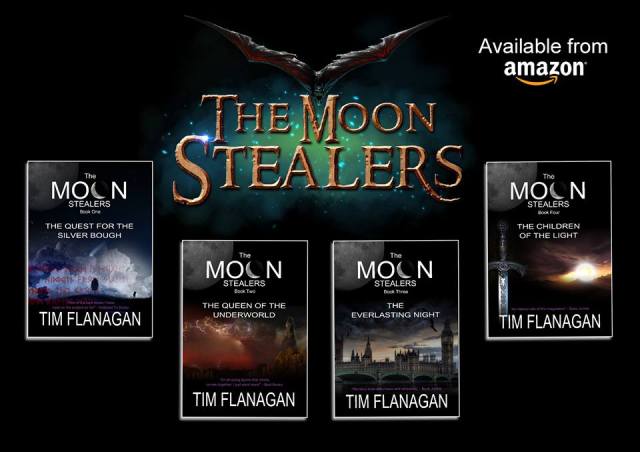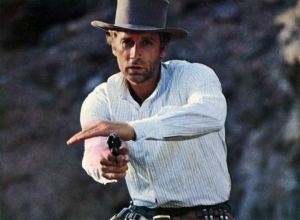Rob Morris is a high school teacher and military historian who lives in Ammon, Idaho. His first book, ‘Untold Valor: Forgotten Stories of American Bomber Crewmen over Europe in World War II’ (Potomac, 2006), is now in its fifth printing and remains a popular book in the genre. Morris next co-wrote ‘Combat Bombardier’ with 95th Bomb Group bombardier Leonard Herman in 2007. In 2012, his seminal history of the WWII 95th Bomb Group, ‘Wild Blue Yonder and Beyond’ (Potomac, 2012), commissioned by the Group, was published. 2013 had been a busy year for Morris, as his writing credits include ‘Untold Valor: World War Two in the Pacific’ (Fonthill); ‘The Battle of Gettysburg’ (Instinctive); ‘Presidents of the United States’ (Instinctive); and ‘The Civil War Chronicles (Instinctive).
This interview is one of the first Rob Morris has given this year. It’s an exclusive, and I think you will enjoy it!

Good morning, Rob. Thank you for agreeing to undertake this interview.
Good morning.
I want to start by asking what inspires you?
A) When ordinary people dig deep and do extraordinary things. I find inspiration in people that have that spark–the real and universal. I am most interested in the way human beings rise above themselves and their surroundings to do things that turn them into something greater than the sum of their parts.
Who is the most inspiring individual you’ve ever met?
I’ve met many as a WWII military historian, but my most inspiring individual was my grandpa, Herman. His mother and father immigrated from Austria to Idaho in the 1870s and homesteaded just off the Nez Perce Reservation. Herman only got to finish the 8th grade, but he was a self-made man whose imagination and talent seemed limitless. In his lifetime he was a telephone lineman, an auto and motorcycle mechanic, a farmer, a telephone company owner, a movie theatre owner, and a historian. He’s still my hero, and he’s been gone for 40 years now.
So, when did you first consider yourself to be a writer?
When I wrote and illustrated my own stories as a four-year-old. Before I could write, I narrated the words to my mom or dad, who would neatly inscribe them under my illustrations. I wrote a 50-page book at age 9 that I thought was pretty good and decided I like to put my stories on paper whether anybody else enjoyed them or not.
How many times have you started a story without finishing?
Rarely. I am a writer of the old school, who believes writing is 1% inspiration and 99% perspiration. When I start something, I finish it.
What is the greatest writing aide a writer can have?
People who inspire in some way.
How does a cover present itself? Where do those ideas come from?
As an author who has had several books published by large publishers, I have enjoyed the times when I was given artistic input. My first cover, on Untold Valor: Forgotten Stories of American Bomber Crewmen Over Europe in World War Two, was from a William Phillips painting I saw on the wall of the airplane’s bombardier while visiting the bombardier’s home in Worcester, Massachusetts. I knew it had to be the cover, so I tracked the author down and got his permission. The cover of my book The Wild Blue Yonder and Beyond: The 95th Bomb Group in War and Peace, came to me in a dream. It tells the story of the American bomber group in England, complete with planes taking off, the old Norman church of Horham, Suffolk in the background, and some English children waving at the planes. The cover of my latest, Untold Valor: The Second World War in the Pacific, was designed by the publisher, but I really like it, because it shows young Marines on Okinawa hunkered down in an artillery shell hole trying to stay alive.
When you sit down to write a book, do you go through a lot of drafts?
Yes. Editing is the key to good, tight writing. As is practice. The more ways you try something, the more likely you’ll get it right.
How did you find your writing style?
I just wrote a lot, and it found me. I don’t consciously have a style. I just write in words that feel and sound right to me. I pride myself on being accessible. My favorite writer quote is by Ernest Hemingway. Paraphrased, it is “Why use a twenty-dollar word when a twenty-five cent word will do?”
What is a “writer’s” heaven?
To me, writer’s heaven is the excitement you get when you get a new idea for a new project. Another variety of writer’s heaven is seeing one’s book in print, holding the book for the first time, inhaling the scent of paper and ink, and realizing you have given birth to a new being that is very similar to a child.
What are the things a writer “must not” do?
A writer must always speak the truth. I also feel a writer must be true to the craft by not ripping off somebody else’s writing idea because it has made money. How many Lord of the Rings or Hunger Games does the world need, anyway? Do something new.
How often have you read another writer’s book and said, “I can do better than that” to yourself?
Pretty often. Success in the writing world is similar to success in Hollywood or anywhere else—being in the right place at the right time with the right look and knowing the right people. Well, I live in Idaho, so I don’t know the right people to get my stuff published, but I do have a feeling that I’m good and that at some point that makes my odds better.
Do you have any advice for beginning writers?
Be yourself. Write something true. Don’t give up. Take criticism. Expect lots of rejection on the way. If something isn’t quite good enough, go back to the drawing board. Each try makes us better.
What is your writing routine? How do you discipline yourself to keep at it?
I’m old-school. I don’t sit and wait for a muse. Muses aren’t real. I write and write and write no matter what and then edit after a full day of writing. It is easier to edit the crap out at the end rather than as you go. As a teacher, I have often written late at night or early in the morning. I have written several of my successful books by sitting at a computer terminal for eight hours a day, seven days a week, for an entire summer. I learned discipline as a long-distance runner. Only through pain can one reach glory. If it wasn’t hard, it wouldn’t be called “work.”
Do you write every day?
I write something every day. But when I’m teaching, I’m writing lessons. I give 100% to everything I do. The Greeks called it arête.
Do you consider writing to be a form of activism? Do you think novelists have a duty to address political issues?
To an extent. It depends on the type of book. Certainly someone like George Orwell or Ken Kesey is an activist. I am personally not interested in politicians or politics per se. I like real people living real lives and being honest and courageous in the face of adversity. I don’t see politics as an area that draws out the best in people, and I don’t like most politicians. I guess because they violate my own idea that a person should be true to himself or herself and not grovel or pander. I have no interest in writing politically activist literature. But some of my favorites are good at it, like Orwell, Twain, Hemingway and Steinbeck.
Who are your favorite authors?
I love John Steinbeck, especially Grapes of Wrath. Also anything by Hemingway. Love Ken Kesey. And Orwell. And Dickens. And Twain. And…but where to stop?
I’m a school teacher for this question. What can you offer to help me prepare 4th graders to appreciate writing, now and for the rest of their lives?
I teach writing, as a matter of fact. To 9th graders. I tell my kids that writing is a way to find out about ourselves and try to make sense of the world around us. It can take the everyday and make it incredibly sublime or incredibly heart-breaking. All life is a story, and all stories are only preserved through writing. By writing, we learn about ourselves. It makes us human.
How do you like to write? By the pool? On the bed? In the car? What’s your heavenly writing situation?
At a table, with my computer and some strong coffee, and maybe a dog snoozing at my feet for company. Ideally, if I were better-off, I’d have a writer’s cottage in a great location like a cliff on the Kerry coast of Ireland.
Do you feel supported as a writer?
It is a solitary profession. I guess the support comes from those who let you know they like to read what you write. I’ve had that. It’s validating.
Many people think it’s important to be expressive when writing dialogue. How do you feel about it?
I think it’s important to write honest dialogue and not worry if it’s expressive. If dialogue is honest, it will be expressive at just right times and not when it doesn’t need to be. Besides, expressive is a pretty wide-ranging term.
How do you think your latest book “Untold Valor: The Second World War in the Pacific” will be received by readers?
All my previous books have been well-received by critics and general readers. I think if I do my job right, my readers will enjoy anything I write. But I owe it to them to give them quality.
Thank you for your time, Rob. “Untold Valor: The Second World War in the Pacific” is available now from Amazon.

Get your copy of “Untold Valor: The Second World War in the Pacific” today from Amazon!






